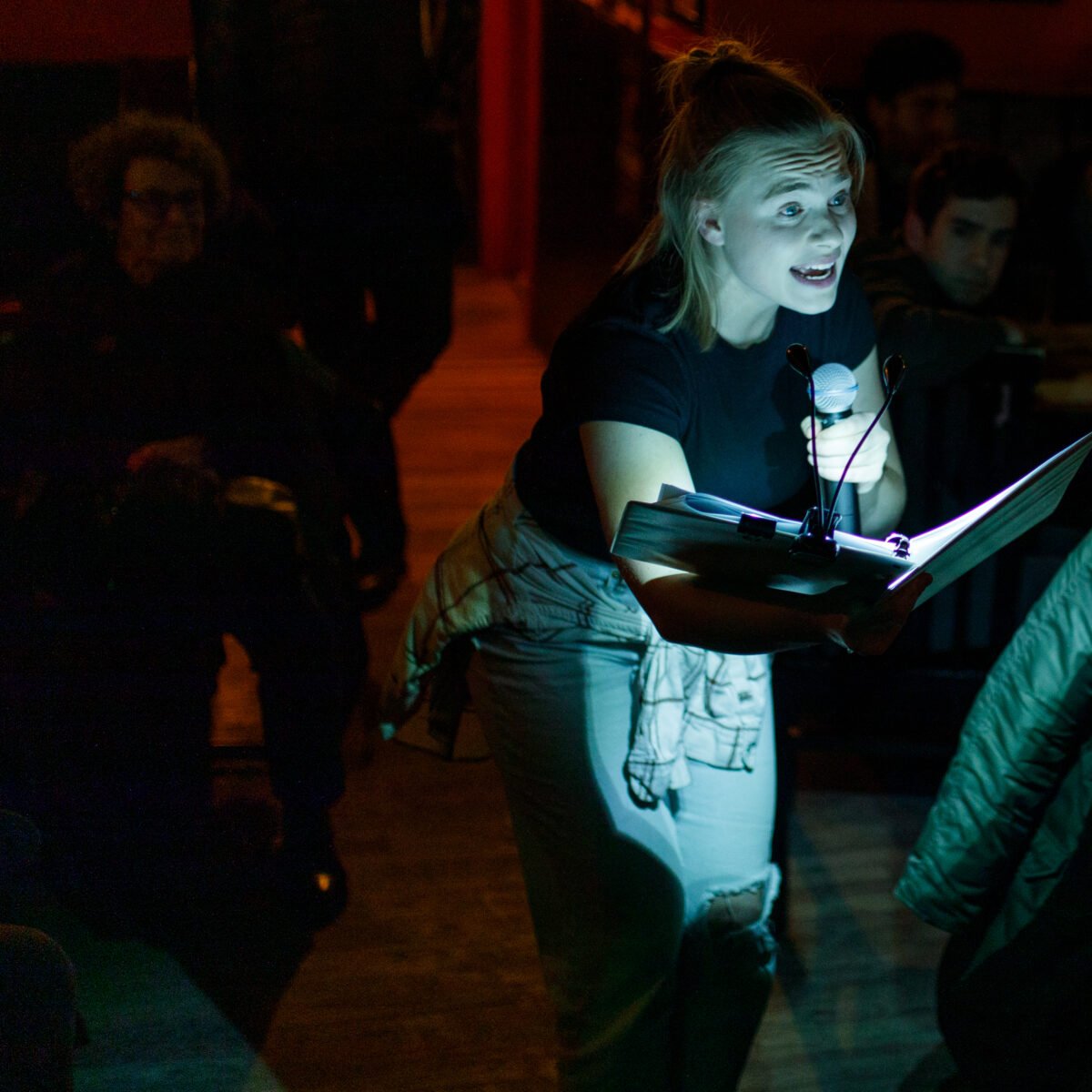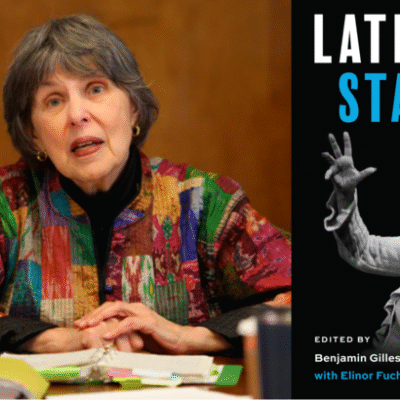Food Tank: Bridging Theatre and Advocacy
As a nonprofit whose mission is to advocate for sustainable food systems, Food Tank uses research, writing, and public events to inspire conversation and catalyze progress towards food and environmental equity. Art has always been a key arm of their approach. Their screenings of documentaries at events like the Sundance Film Festival have helped shed light on issues like the control of agricultural resources and the corporatization of our food sources.
Food Tank often creates programming with the South by Southwest (SXSW) “All Things Food Summit,” and in March 2023 Pollack and his co-founder Danielle Nierenberg decided to feature the first few scenes of Little Peasants in front of an audience, which ran concurrent with panel discussions about labor movements in the food service industry. The event amplified the work of farmers, food workers, chefs, businesses, and policymakers who are working to transform our agriculture systems. Pollack told me that they wanted to see how attendees reacted to having a piece of theatre as part of the programming, and the response was overwhelmingly positive with the play receiving a standing ovation.
While that was the first time Food Tank had featured a play in one of their conferences, Little Peasants isn’t Food Tank’s first foray into theatre. Pollack’s first play, Garjana, later reimagined as WeCameToDance, was initially performed as part of a fundraising event and later scheduled to debut at La MaMa Experimental Theatre Club, but it was canceled due to the COVID-19 pandemic. The play tells the tale of extraterrestrial beings descending upon Earth, bearing a crucial warning about an incoming climate crisis that mirrors their own world’s past. Blending song, dance, and audience interaction, the characters passionately implore for collective action and convey the poignant reality of environmental upheaval—all while inspiring people of all ages to get up and dance. Food Tank took WeCametoDance to Edinburgh Festival Fringe in 2021 and maintained a sold-out run of four weeks, despite audiences being slow to return during the pandemic. The response during this tricky time was a sign of optimism that audiences were excited to get back to the theatre, with some even returning multiple times dressed up as their favorite alien and learning their dance moves.
By placing food not just at the center of the play thematically, but at the center of the experience and venue of the workshop, Food Tank and Little Peasants inspired cheers, boos, and many post-show stories from audience members
Interactive Theatre Can Amplify Accountability
In keeping with their belief in the effects of interactive theatre, Pollack and Robinson asked the audience at the Burren to be part of a vote at the moment in Little Peasants when the baristas of Unicorn Coffee demand to have their voices heard in front of the corporate heads of the company. To create the environment of a true union drive, we created buttons that said “Vote No!” or “Union Yes!” that guests could choose from. By the time they had heard characters’ arguments, some were ready with their vote and were chanting and fist-bumping along with the characters, but others still took time to quietly think. While both votes went in the “Yes” direction during our performances, there were still a good number of “No” votes. The vote felt so real that our bartender for the evening thought at one point that this was a real union event. Pollack had written two endings, one where you’d see what could happen when a corporation extinguishes a drive, and the other where the labor organizers are inspired to work toward a unionized future.
“Theatre should never be a passive experience,” says Pollack. “The traditional setup of fixed seating, facing a stage in the front, and silencing our cell phones doesn’t enable the deeper connections and experiences that we know audiences are craving.”
By placing food not just at the center of the play thematically, but at the center of the experience and venue of the workshop, Food Tank and Little Peasants inspired cheers, boos, and many post-show stories from audience members whose parents were in a union, or who were in unions themselves as baristas, firefighters, or arts workers. Many voiced that they resonated with the character of Ashley, a single mother who doesn’t want to risk unionizing because she can’t afford to look for another job if her store gets shut down. Some were surprised to find that they empathized with the money-concerned coffee CEO Monique when she cautioned baristas that that her father faced intimidation tactics when he tried to join a union as its first Black member. Others shared that they appreciated that the medium of theatre helped them understand some of the more complicated aspects of labor organizing that are on such a national stage right now in so many industries.
By partnering with artists, activists, and grassroots organizations at the front lines of the food justice movement and putting their stories in front of people and institutions of power, Food Tank is amplifying their messages.
Art that Makes You Hungry for Food and Change
With WeCameToDance and Little Peasants, Food Tank has started a body of work about the interconnectedness of food, labor, and climate that seeks to empower any arts goer to take meaningful action in their communities. By partnering with artists, activists, and grassroots organizations at the front lines of the food justice movement and putting their stories in front of people and institutions of power, Food Tank is amplifying their messages.
Our barista characters’ struggles and dreams for the future were taken in by local elected officials, including the mayor of Somerville Katjana Ballantyne, deputy mayor of Cambridge Marc McGovern, and Massachusetts congresswoman Ayanna Pressley, who emphasized in front of the crowd that art is essential in order for our country and our systems to make progress: “There cannot be radical and transformative revolution without the arts. The play puts a spotlight on individuals fighting for better conditions and turning the tide of change for workers everywhere. It condemns systems that cause harm and celebrates unsung heroes.” We heard many audience members resonate with her call for more justice-oriented artmaking.





